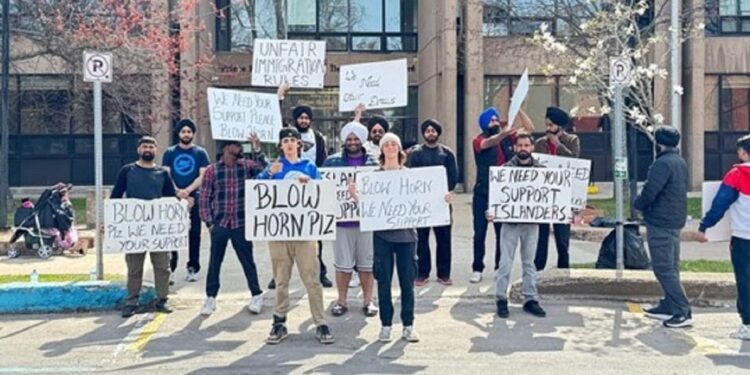Tens of thousands of international students have taken to the streets across Canada in widespread protests against new immigration policies introduced by the federal government. The demonstrations, which occurred this week in major provinces such as Prince Edward Island, Ontario, Manitoba, and British Columbia, involved around 70,000 students.
The protests were sparked by recent immigration reforms that have left many international students fearing deportation. In 2021, Canada abolished the Post-Graduation Work Permit (PGWP) program, which had previously allowed international students to gain work experience in the country after completing their studies. The situation worsened when the federal government introduced a two-year cap on international student visas last year.
As of 2023, international students accounted for 37% of study visa holders in Canada. However, the new cap on student visas is expected to reduce the intake of foreign students by 35%, a move the government claims is necessary to ease pressures on housing, unemployment, and public services.
In June, the Canadian government further tightened regulations, announcing that foreign nationals could no longer apply for a PGWP at the border. This decision has heightened concerns among students, many of whom are now worried about their future in Canada. Advocacy groups like the Naujawan Support Network have warned that numerous international graduates could face deportation once their work permits expire at the end of the year.
One former international student, Mehakdeep Singh, expressed his frustration, saying, “I spent six years taking risks to come to Canada. I studied, worked, paid taxes, and earned enough Comprehensive Ranking System points, but the government has taken advantage of us.”
The situation has been further aggravated by new provincial policies, including a 25% reduction in permanent residency nominations, which further limits pathways for international students to remain in Canada. Immigrant workers have also joined the protests in cities like Brampton, countering claims that they are contributing to local housing and job crises.
























